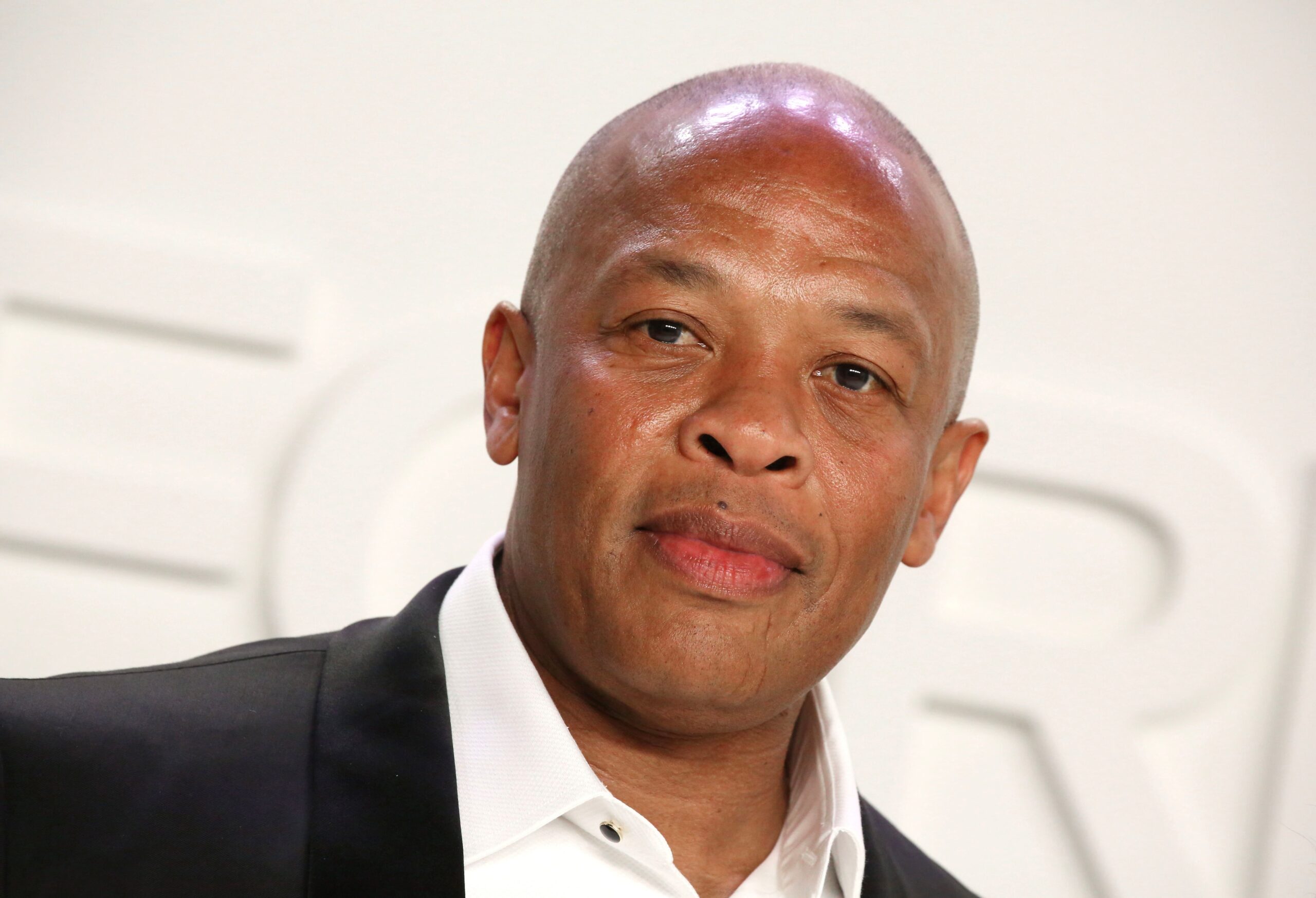
Dr. Dre
Photo by Matt Baron/Shutterstock
Dr. Dre’s debut album, The Chronic–which surprised fans around the world when it unexpectedly popped up on streaming services today in honor of 4/20–undoubtedly revolutionized Hip-Hop.
For many (white) suburbanites it debuted a brighter, more effervescent Hip-Hop than its grimy East Coast counterparts. Focused on melodic builds, catchy hooks, and so much swagger, G-Funk was born on December 15, 1992. By now, there are plenty of articles detailing the specifics of what made the project so magical. It transformed the way the world viewed Hip-Hop and is arguably the single most important release in the entire genre for a multitude of reasons. But in hindsight, it’s behind-the-scenes mythos is almost as infamous as the project itself, and the overall experience was forged by Dre partially in the hopes of rewriting a stressful and troubling personal history. Since its release, it’s brought as much harm to him as it has good.
In 2015, when Straight Outta Compton was dominating the box office, critics took issue that the bio-pic glossed over the numerous accusations of misogyny and violence against women that trailed young Dr. Dre during his budding success. Dre penned a response to the accusations in a letter to The New York Times. While in the past he had been dismissive of such allegations, the letter was succinct in its honesty. “Twenty-five years ago I was a young man drinking too much and in over my head with no real structure in my life,” he wrote. He went on to apologize to “all the women he’s hurt.” One of the main three accusations came from Hip-Hop journalist Dee Barnes, who alleged that Dre confronted her about an N.W.A. segment she ran on her Fox show Pump It Up! Dre was frustrated by the segment, punched her repeatedly in the head, and “[slammed] her face and the right side of her body repeatedly against a wall.” He was charged with assault and battery and pleaded no contest. He was sentenced to community service and was ordered to additionally make a domestic violence P.S.A. “I was out of my f*cking mind,” Dre later said.
Dr. Dre apologises to Dee Barnes for assaulting her in 1991www.youtube.com
Dre’s promising legacy leading up to The Chronic was indeed drowning in hardship. Despite producing seven platinum records for Ruthless Records, including N.W.A’s Efil4zaggin, the producer was miserable between 1983 and 1981. He believed Eazy-E and his manager Jerry Heller were taking advantage of his talents and that his royalty payments were far too low. To get out of his contract, he enlisted the help of the now-disgraced music mogul Suge Knight. While Knight now sits behind bars for manslaughter, he came to be embroiled in a countless number of accusations that involved violence and intimidation, including that he ordered the death of Tupac Shakur. In 1996, at the time he and Dre became close, a rumor was buzzing that Knight and a couple of his goons had dangled Vanilla Ice off a balcony to force him to sign over his rights to “Ice, Ice Baby.” Knight got Dre out of his contract after he threatened to kill Eazy-E’s mother. As the infamous Death Row Records came together, Dre’s legal problems with Barnes also started to mount.
Needless to say, there was a lot of pressure on Dre’s shoulders. His affiliation with Knight was already causing problems, and The Chronic would have to be both Dre’s first solo release and Death Row’s debut showcase, all while he was in the midst of an extremely tumultuous domestic abuse case. The album came together after an insane amount of rejection and a tireless amount of work; the process exhausted Dre, and his perfectionist workaholic mindset inevitably led to a major slump later in his career. He left Death Row Records in 1996 to start Aftermath, his own label, which initially flopped. Dr. Dre Presents the Aftermath and The Firm’s The Album both severely underperformed, (Dre credits Eminem for revitalizing it.)
The Chronic‘s 1999 followup, 2001, was a thriving success, but Dre completely disappeared behind the scenes after that. He let Eminem loose on the unsuspecting public and turned 50 Cent into a star, but as word of his next solo project, Detox, began to spread, his perfectionist tendencies caused him to one day just walk away from it. 2015’s Compton, his first solo work in 16 years after a slew of awkward singles releases, was advertised as Dre’s “grand finale” and was announced shortly after word of Detox‘s demise spread. As a result, the hype was insurmountable, and while the album was a critical darling, it has since faded into relative obscurity when compared to the legacy-building nature of Dre’s past work.
Suffice it to say, Dre’s entrepreneurial abilities have thrived where his musical efforts have fumbled, but it has been an awkward and chaotic ride for him to find happiness. But these stories all aid The Chronic’s marvel. It was the apex of a creative powerhouse who literally gave everything he had to make an iconic piece of art. “A recurring theme of Dr. Dre’s lyrics and the self-selected narrative is sacrifice,” wrote The New York Times. The Chronic ruined Dre’s life, and at times it villainized him. While his narrative hasn’t been as bulletproof as his music, in hindsight that album truly took an absurd amount of sacrifice.
The Chronic













